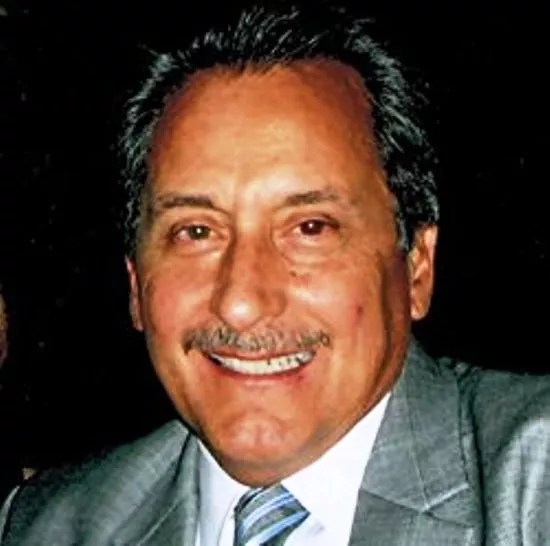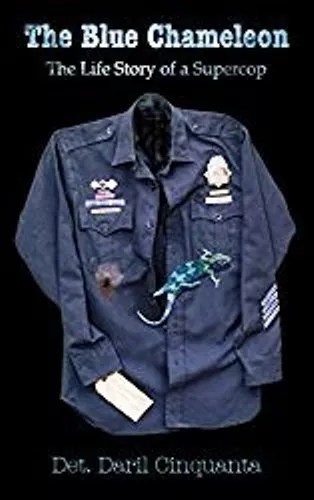
Amazon.com

Audio By Carbonatix
Toward the end of his unabashed and unapologetic memoir of his years as a Denver cop, Daril Cinquanta trots out a lengthy list of his favorite maxims, including such well-gnawed cheese as “fame is fleeting,” “never go to bed mad,” and “failure was never an option.” Among them, though, is one puzzler: “For one small moment, I was the ‘best’ at something.”
Cinquanta isn’t exactly shy about tooting his own horn – “If you are good at something, go ahead and flaunt it” is another of his clichés-to-live-by – but after nearly 400 pages of warts-and-all waltzing down memory lane, I was still confused about the something Cinquanta believes he was best at. Putting bad guys behind bars? Turning junkies into informants? Looking the other way while fellow officers slept on duty, shagged groupies in their patrol cars and thumped suspects in the pursuit of “street justice”? Deflecting official inquiries into his own enthusiastic but not always by-the-book police work?
Fame is indeed fleeting. Cinquanta was a well-known and polarizing figure in the Denver Police Department in the 1970s and 1980s, involved in numerous high-profile busts and media firestorms – but it’s doubtful that most people who’ve arrived here since he left the force under a cloud in 1989 have ever heard of him. It’s unfortunate that his autobiography, The Blue Chameleon: The Life Story of a Supercop (Waldorf Publishing), written with Dennis Blomquist, appears so long after the events it describes, like a dispatch from a distant planet. Still, this belated, nostalgic score-settler has its uses, giving a glimpse of how dramatically the nature of police work, the internal culture of the DPD and the city itself have changed in just a single generation.
Cinquanta joined the DPD in 1970, a few years after the department had been rocked by a scandal in which several bent, underpaid officers were burglarizing businesses on the side. “Professionalism” was the new watchword, but an old-boy-network still prevailed. Cinquanta acknowledges the casual brutality of some of the old hands he partnered with as a rookie, but it’s clear that he had no interest in reporting them at the time, or refusing the free meals and other perks he was offered once he was in uniform. (He even admits to burglarizing a north Denver resident’s shed in order to score some homemade dried Italian sausage.) It was all part of the job.
Eager for the adrenaline rush of nailing major perps, Cinquanta longed to find his way into heavy-duty drug and robbery investigations. But first he had to pay his dues, including stints in porn houses and public restrooms, seeking to catch homosexuals on a solicitation beef – assignments he describes as “sick” and “perverted.”
The Blue Chameleon is full of the contradictions of a cop who adheres to the secret code of police work, which involves covering for each others’ bad behavior. The book teems with homilies about how the boys in blue are out there to serve and protect, yet Cinquanta also chuckles over how he blew off citizen complaints. He claims not to have any racial animus, yet he readily traffics in cringe-worthy stereotypes when it comes to profiling his suspects: “A black will tell you that he isn’t going to jail or is going to kick your ass. But the Hispanics are sneaky and will jump or sucker punch you.”
His gung-ho approach almost cost him his life. He’d been on the job little more than a year when, in the course of a routine roust of a couple of suspicious characters, he was shot by a prison escapee. The scene begins, I kid you not, with a trip to a doughnut shop, and ends with Cinquanta crawling to his patrol car to summon help.

The cover of Cinquanta’s book features the uniform he was wearing when he was shot on the job in 1971.
Amazon.com
Cinquanta survived that ordeal, of course, and went on to become one of the princes of the city. He developed an elaborate network of informants, mostly by cutting deals with addicts he’d busted to “work off” their cases by snitching on other targets. “Ideally, informants fear me and respect me at the same time,” he reports. “My informants knew I wanted information on all felonies, including stickups, burglaries, thefts, narcotics, speed labs, counterfeiting, auto theft, unsolved crimes and wanted fugitives. Because they were part of the undercurrent of criminal enterprise, and that stream was so deep, they always produced.”
One of Cinquanta’s most valued informants led to one of his most impressive cases, foiling a 1975 plot by Chicano activists to bomb police stations. Various accounts have been written about the case, including a book by the alleged ringleader, Juan Haro, who claims to have been “set up” by Cinquanta’s informant and betrayed by Crusade for Justice leader Corky Gonzales. But here Cinquanta gets to fire back, insisting on the righteousness of the bust and denouncing the Crusade as “a militant terrorist organization hell bent on killing policemen.”
Eventually, though, Cinquanta’s wheeling and dealing with informants came under department scrutiny. There were allegations that some of his snitches were orchestrating crimes and walking away while their accomplices took the fall and the media-anointed “Supercops” – Cinquanta and partner Larry Subia – took the credit. Cinquanta denies this, claiming he was scapegoated; he’s still seething over the way former buddy (and future police chief) Dave Michaud declined to go to bat for him. Out of fatigue, he suggests, he ultimately pleaded guilty to two counts of official misconduct, a misdemeanor, and received probation. His police career was over.
His downfall is handled somewhat obliquely in the book, which is poorly edited and suffers from typos – even in a cover blurb from John Walsh of America’s Most Wanted, who notes that Cinquanta “collard over 1000 fugitives.” The breathless recounting of one bust after another becomes a blur; one longs for more detail on fewer cases and some kind of reflection on what it all means.
Cinquanta has gone on to become one of the state’s better-known private investigators. He’s guarded some visiting celebs, been embroiled in gumshoe work on behalf of Jefferson County commissioners and, more recently, was accused of conducting surveillance on Leah Remini for the Church of Scientology. He deals with his PI work in the final chapter of his book, but it doesn’t have quite the zing of his account of his earlier police adventures.
“The job was a daily challenge that I welcomed and looked forward to, despite the constant undermining of my credibility by foe and supposed friend alike,” he says of his years on the force. “It proved to be a lonely, dangerous journey.”